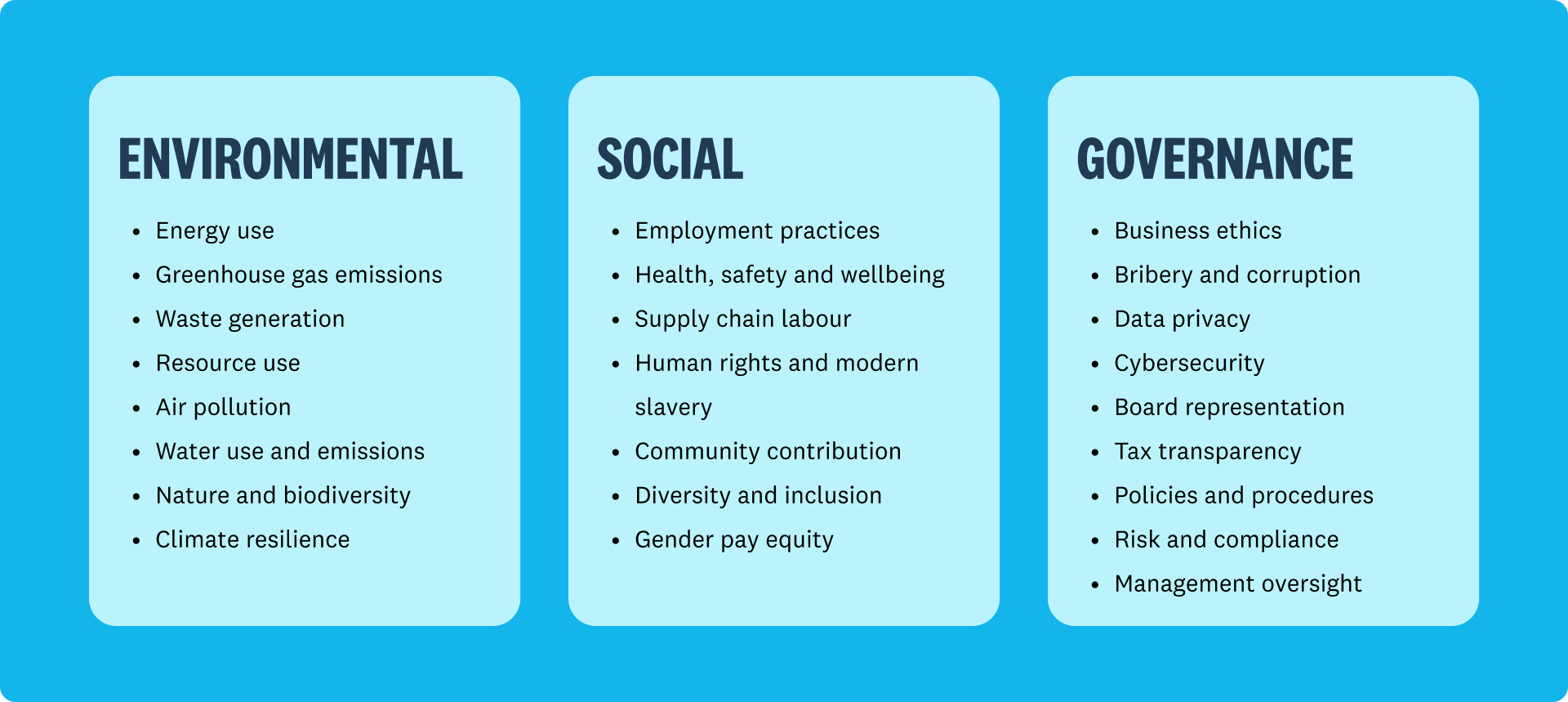Stage 1: Understand sustainability
Learn what sustainability means to your business, why it matters, and where to start.
What you’ll learn in this section
What sustainability means
What ESG stands for and why it matters
The real business benefits of taking action
What is sustainability?
Sustainability means meeting today’s needs without limiting the ability of future generations to meet theirs. It’s about balancing people, planet and profit: creating value across all three while minimizing harm.
In business, this means understanding how you may impact society and the environment, positively or negatively, across your operations, supply chain, and product or service. It also means thinking beyond short-term profits and planning for long-term success and resilience.
75% of small and medium business decision-makers said that sustainability is either ‘very important’ or ‘extremely important’ to their business
According to DHL Express' Global Survey on Small Businesses
Environmental, social and governance (ESG)
What is ESG?
While sustainability is the broader goal of balancing people, planet and profit, ESG provides a practical framework to define, manage and measure a business’s impact in those areas. It commonly includes the topics listed in the table below.

Why sustainability matters
Our economy is built on resources that are increasingly under stress: climate change, pollution and social inequality are creating risks and disruptions across industries. These global challenges, from extreme weather and rising costs to shifting customer and employee expectations, are becoming local business issues.

Why sustainability is good for your business
Sustainability is more than the right thing to do; it’s smart business. It can cut costs, attract loyal customers, strengthen your team, and open up new funding or contracts. In a world of rising expectations, being a responsible business helps you stand out and stay competitive.

Getting started
Sustainability doesn’t have to be overwhelming. Start by learning what issues matter most in your industry, then focus on one area at a time. Build a plan, set a goal, and involve your team. You don’t need to be perfect; what matters is getting started and building momentum.
